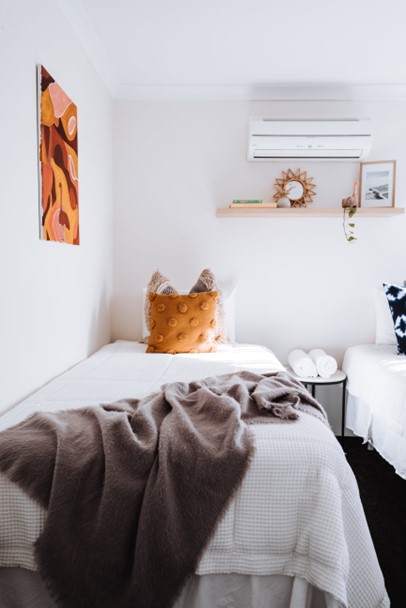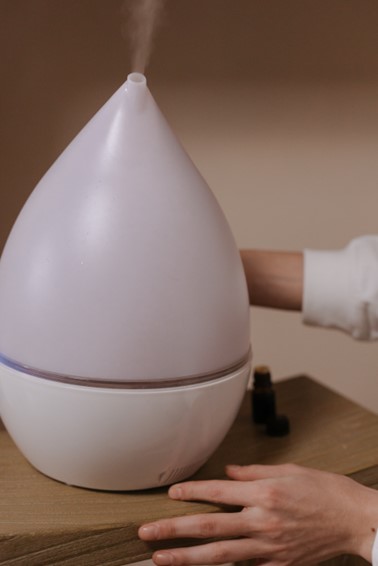The right temperature and humidity in the bedroom are crucial for healthy sleep. Too high or too low a temperature, as well as improper humidity levels, can disrupt sleep and affect the quality of rest.

Here are some tips on how to adjust these conditions for optimal sleep:
- Ideal temperature for sleep: Most experts recommend keeping the temperature in the bedroom at around 18-22 degrees Celsius. This temperature is considered optimal for sleep and allows the body to cool down naturally.
- Humidity: The ideal humidity level for comfortable sleep ranges from 40% to 60%. Air that is too dry can cause irritation to the respiratory tract and skin, while air that is too humid can promote the growth of mold and dust mites.
- Using air conditioning and fans: Air conditioning can help maintain an optimal temperature, especially during the warmer months. Ceiling or portable fans can also keep you cool and improve air circulation.
- Humidifiers and dehumidifiers: If the humidity level in your bedroom is not right, consider using a humidifier (in a dry environment) or a dehumidifier (in an overly humid environment).

- Bedding layering: Using several layers of bedding allows you to easily adjust the warmth during the night. You can remove or add blankets as needed.
- Open windows: If possible, open bedroom windows to improve air circulation and regulate temperature. Fresh air can also improve sleep quality.
- Sleepwear: Choose loose, breathable pajamas, preferably made of natural materials such as cotton, which help regulate body temperature.
- Avoiding heavy meals and intense exercise before bedtime: Heavy meals and intense exercise can raise your body temperature, which can make it difficult to fall asleep.
- Warming the bed: In the colder months, consider using an electric quilt or warm water bottle to warm the bed before bedtime.
- Curtains and blinds: Using curtains or blinds can help maintain the right temperature in the bedroom, blocking the sun’s heat during the day and retaining heat at night.
- Use of programmable thermostats: The use of a programmable thermostat can help maintain a constant, optimal temperature in the bedroom throughout the night. It allows you to adjust the temperature automatically, which is convenient and energy efficient.
- Choose the right bedding materials: fabrics such as cotton, bamboo and linen are breathable and can help regulate body temperature. Avoid synthetic fabrics, which can trap heat and moisture.
- Covering windows during the day: Covering windows during the day can help keep a room cool, especially in summer, making it easier to maintain a pleasant temperature at night.
- Consider plants in the bedroom: Some plants can help naturally purify the air and regulate humidity, which can have a positive effect on sleeping conditions.

- Avoid excessive heating in winter: Excessive heating can lead to dry air and discomfort. A better solution is to use extra layers of bedding rather than overheating the entire room.
- Regular inspection and maintenance of heating and air conditioning systems: Regular maintenance ensures that these systems operate efficiently and do not introduce additional allergens into the air.
- Use of thermoregulatory accessories: Cooling mats, pillows with cooling gel or quilts made of thermoregulatory materials can be helpful, especially for people who tend to overheat at night.
- Adequate ventilation of the bedroom: Regular ventilation of the bedroom, preferably in the morning, can help exchange air and maintain a fresh environment.
- Using diffusers and humidifiers with essential oils: Certain essential oils, such as lavender and eucalyptus, can promote relaxation and improve bedroom air quality.
- Be aware of the impact of seasonal changes: Changes in the seasons can affect bedroom conditions, so it’s a good idea to adjust temperature and humidity settings according to the season.
Remember that everyone has individual preferences for sleeping conditions, so experimenting with different settings will help you find the ideal conditions for healthy and comfortable sleep.
